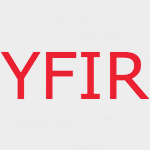Tags

I’m not sure if it’s just more evidence of the extent of my Icelandic derangement, or simply a normal thing that people do when they study a language, but sometimes I sit and read…the dictionary. I mean not cover to cover, but randomly, seeing what catches my eye. Recently it was the ‘Y’ section, where I noticed there aren’t very many words 🙂 And while looking at the words that start with ‘y’, I realized that about 75% of them were words that begin with the prefix ‘yfir‘. So thus the topic of this post 🙂
By itself, the preposition yfir means over, above, across. It can take both the accusative or the dative case, which is typical in Icelandic, with accusative being used for motion and dative for location.
Ég hengdi myndina yfir borðið.
I hung the picture over the table. (direction/motion – accusative)
Myndin er yfir borðinu.
The picture is over the table. (location – dative)
…
[UPDATE] I received an email from a native speaker (thanks Þórey!) who said that the examples above for “hanging a picture” are better expressed as
Ég hengdi upp myndina fyrir ofan borðið.
Myndin er fyrir ofan borðið.
Also, upp is used after hengja, because otherwise it imparts the meaning of hang as in a person…from a noose 🙂
…
As a prefix, yfir- usually imparts a similar meaning, like in
yfir·maður – boss, chief
yfir·læknir – chief doctor
yfir·stjórn – management, administration
Here it creates the idea of a person who is above others, someone of rank or authority. Some words with more of a location sense are
yfir·borð – surface
yfir·skrift – title, heading
The over- meaning, as in too much, more, beyond, can be seen in words like
yfir·borga – overpay
yfir·bjóða – outbid
yfir·kominn – overcome
yfir·hitna – overheat
yfir is also used in telling time, for minutes past the hour:
Kvað er klukkan? – What time is it?
Korter yfir sjö. – Quarter past 7.
Some are tricky and not always what they seem if taken literally:
yfir·heyra – is not overhear, but question, interrogate
You can usually take a word apart to understand where its meaning came from, like yfir·troðsla – violation, infraction. The stem word likely comes from troða – to trample, step on. So with yfir- it becomes like overstep, troðsla being the noun form.
There are a lot more of course 🙂 Many seem a bit abstract, but make more sense when you pick them apart (try tracking down yfir·klór). Do a wildcard search at the wisc.edu dictionary site and check out all the ones they have.
